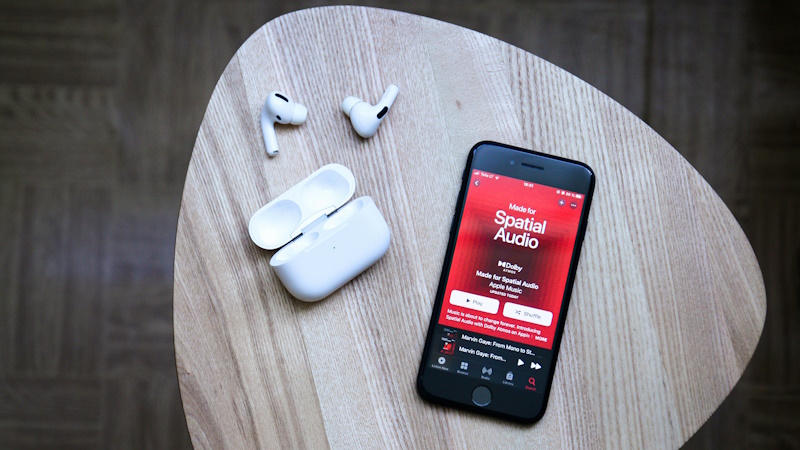Indie labels don’t like Apple encouraging spatial audio
Image credit: Auguras Pipiras
Apple have been making noise over paying artists more if they upload tracks mixed with spatial audio, but is it fair?
At the start of the year, leaked emails revealed that Apple intend to pay artists more when spatial audio mixes account for 50% of their streams. They will reportedly pay as much as 10% more for spatial available tracks on Apple Music.
We’ve discussed why Apple might be doing this, surmising firstly that Apple want to separate their service from competitors like Spotify. Secondly, and perhaps most importantly, Apple likely want to enhance the experience of their expensive, new augmented reality headset Apple Vision Pro.
Since the announcement, independent labels have expressed concern over the move. There is a fear that the increased payments for spatial audio would benefit major record labels the most. Independent labels and artists are less likely to have the funds for expensive spatial audio mixes, and therefore less likely to benefit from the royalty raise.
One senior executive at a large independent label told the Financial Times: “It’s literally going to take the money out of independent labels and their artists to benefit the biggest companies in the marketplace.” They continued, explaining: “[Indies have] found it hard to justify the expense of creating spatial masters… we’re not in the business of chucking money just because Apple is saying you should be spending money on this.”
However, there is no indication that Apple’s increased payments will come from the same pot. It sounds as though it will be an extra investment from Apple, leaving all regular audio tracks to earn the same as before. So, whilst it may seem unfair that indies don’t have the same opportunities to earn more, they shouldn’t be losing any revenues.
Perhaps the larger question here is, will Apple pay artists more for all streams? Whilst the music industry has seen incredible growth for years thanks to streaming, there are still crises within the music industry as independents face difficulties making a living solely from music and smaller venues struggle to stay open.
Apple aren’t the only ones facing criticism over payment choices for music. Universal Music Group (UMG) recently began pulling its catalogue from TikTok over remuneration disputes. Whilst Universal claims that TikTok don’t pay enough for uses of music in their content, TikTok bit back saying that UMG were creating a “false narrative and rhetoric”.
Deezer on the other hand seem to have strengthened their relationship with UMG. With their new artist-centric streaming model, Deezer promise to reroute certain revenues to increase payments to artists who engage with fans more. So far, they have signed UMG and Warner Music Group (WMG) up to the new model.
There is of course concern that Apple Music’s new policy will find the bonus payments from the existing royalty pool. One indie exec explained: “If [this] takes between 5 and 10 per cent off of your global revenues, and not even because the songs aren’t performing but because you lost that money and it goes to Universal, the biggest player in the market, we’re definitely concerned.”
